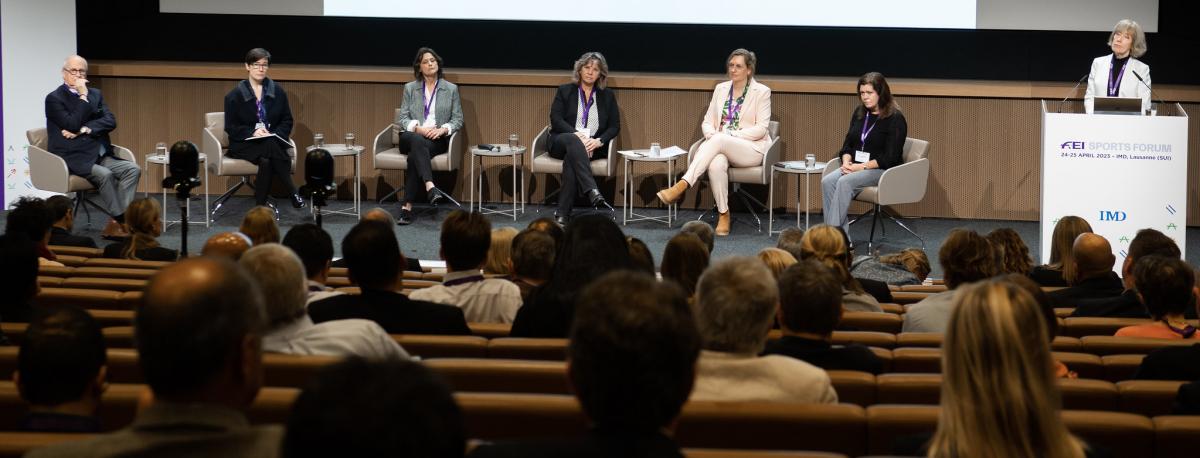 Campus
Campus
Session 1: Interim Report from the Equine Ethics and Wellbeing Commission
The Chair of the Equine Ethics and Wellbeing Commission Dr. Natalie Waran opened the Session, with a brief overview of the role and rationale behind the creation of the Commission, its objectives and the role of the Commission in relation to the FEI.
She then explained the importance of Social Licence to Operate (SLO) to the existence and longevity of equestrian sport. It was noted that although many sports are under similar pressure (although for different reasons) to enhance their social licence to operate, equestrian sport is unique as it involves the use of an animal that the public perceives as particularly vulnerable.
To gain baseline information regarding the current SLO situation for equestrian sport, the Commission carried out two large scale surveys: one involving the equestrian community (both ‘FEI” and ‘non FEI’ stakeholders); and the other with members of the public from 14 countries.
Some of the key points that came out from these surveys are as follows:
The survey also brought up 33 common themes that the Commission then consolidated into six priority focus areas: 1) training and riding, tack & equipment; 2) Recognising physical and emotional stress; 3) Accountability, enforcement & knowledge; 4) the other 23 hours; 5) Competitive drive, the horse as a number; 6) Not fit to compete/masking health problems.
The Chair then put forward the 24 recommendations which has been arrived at based on learnings from public and equestrian surveys, from information gained through ‘in country’ independent surveys, a review of current research, consultation with experts in their field and with equestrian stakeholders. The commission also set up advisory and working groups to inform their work.
The Chair then took delegates through the recommendations, which are future focused and centre around developing a Good Life for Horses. The recommendations are grouped into five key areas – which include measures that the FEI and the wider equestrian community can take to achieve higher standards of horse welfare through improved leadership, trust, transparency, pro-activeness and independent evaluation.
Some key points made during the discussion were as follows:
Commission members also fielded questions on transportation issues as well as the need for more transparency and guidance on the use of tack and equipment.
See the dedicated Press Release A ‘Good Life for Horses’ opens first day of FEI Sports Forum discussions.

© FEI/R. Juilliart
About the Equine Ethics and Wellbeing Commission
Founded in June 2022, the Equine Ethics and Wellbeing Commission (EEWB) was created to address societal concerns related to the use of horses in sport and to provide an independent evidence based ‘framework’ to guide FEI regulations, policies and practices in relation to equine welfare and wellbeing.
Detailed information on the composition, aims, work, and timelines of the EEWB Commission is available here.
Refer to the full Executive Summary here.
Panellists & Members of the Equine Ethics and Wellbeing Commission:
♦ Professor Dr Nathalie Waran (NZL)
♦ Professor Dr Kathalijne Visser (NED)
♦ Dr Camie Heleski (USA)
♦ Professor Madeleine Campbell (GBR)
♦ Ms Jessica Stark (GBR)
Moderator: Ms Grania Willis (IRL)
We use cookies on this site to enhance your user experience.
By clicking any link on this page you are giving your consent for us to set cookies.